Bamboo Recovery
>> Friday, April 18, 2014 –
bamboo,
winter damage
All of the bamboo in the Midwest (and probably other parts of the country) took a big hit this year, as the extra-low temperatures turned most "evergreen" bamboos brown. Emails from readers indicate that this is not just a problem in the St. Louis area, as there are many bamboo growers that haven't experienced this browning before and are asking what they should do.
Hopefully this post will help you decide whether your bamboo needs to be cut down or if you just need a little more patience until the missing greenery returns. Let's take a look...
We'll start with what may be the most obvious: bamboo whose leaves are all dead, but the culms still look very much alive -- as in the photo above. (This is Phyllostachys virella if you're interested in the details.)
To confirm that these culms and branches are indeed still alive, take a look at the branches where the leaves connect:
See the elongating leaf buds? That's the sign that your bamboo is going to leaf back out, and it's the first thing that I look for when checking my bamboo every spring.
Sometimes it's not evident if the buds are still viable or if they're dead, as some species or even individual plants will take longer to start waking up in the spring. Here's an example of some that are obviously dead:
And here are a few that are yet unknown:
I have a feeling that some of those are fine, but won't know for sure until they start growing.
Sometimes it's clear that an entire branch or culm has died:
That woody coloration makes it apparent that this culm can be removed. I'll leave the dead culms in smaller plantings to help protect this year's culms as they grow, but will remove the dead ones from larger, thicker plantings now because it will become much more difficult after the shooting starts -- you don't want to damage the fresh, young culms!
So back to the damage... sometimes it's obvious that everything above the ground has died and can be mowed down:
"Top kill" is not a description that bamboo growers like to use, but it happens. Rest assured that this plant (Hibanobambusa tranquillans 'Shiroshima') is still alive underground and will soon send up new shoots. This Idocalamus tessellatus too (I'm pretty sure):
Other plants look to be pretty well fried, like this Semiarundinaria okuboi...
...but in fact are still alive and are sending out new leaves:
This one is leafing out all the way to the tops of the culms -- I may need to trim some foliage from the tips of some of them, but we'll see. Fully-dead leaves should all fall off, as indicated by my yard right now:
I estimate that only a third of the leaves have fallen so far, so there is much more to come.
Speaking of the tips of culms and branches... Sometimes they appear to be quite dead, especially when compared with other parts of the plant, as with this Phyllostachys atrovaginata:
But closer inspection shows that it's difficult to predict yet which parts are actually dead -- there are several leaf buds extending now.
The very tip seems to be dead though:
Some plants will need a pruning to make them look their best, like Shibatea kumasaca:
and Fargesia 'Rufa':
Both of which were partially buried in snow when the coldest temperatures hit. If it's green, it was protected by snow cover.
The species that I'm growing that after inspection have been topkilled for me (with low temperature of -8ºF/-22ºC a couple of times, and wind):
- Phyllostachys nigra
- Phyllostachys makinoi
- Phyllostachys viridis
- Phyllostachys dulcis
- Phyllostachys parvifolia
I was all ready to add Phyllostachys arcana to this list, as it looked quite bad:
Upon closer inspection, although half of the culms are dead (in a beautiful way I might add):
The other half of this young planting's culms are still alive!
It looks to me like the ones that are alive are last year's growth, but I can't be certain. Interesting.
All of my other Phyllostachys had at most partial culm death, with the majority of each plant starting to grow new leaves.
This is quite exciting to me, especially since shooting season should start any minute now for these!
Did I answer all of the "is my bamboo dead?" questions? (If not, please email -- my address is on my "about" page)
.
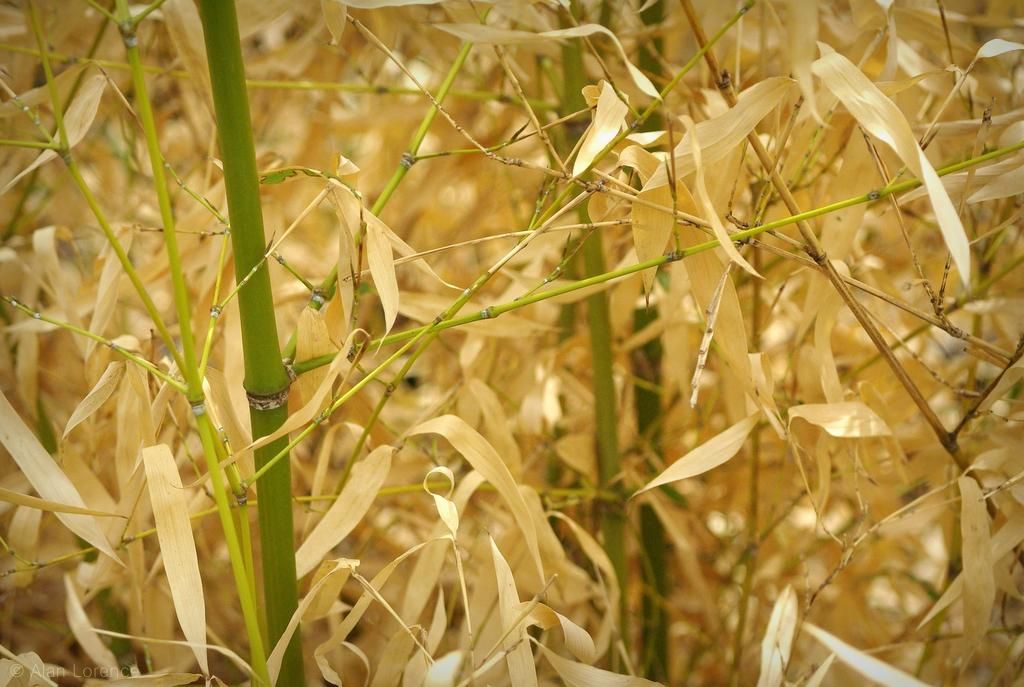
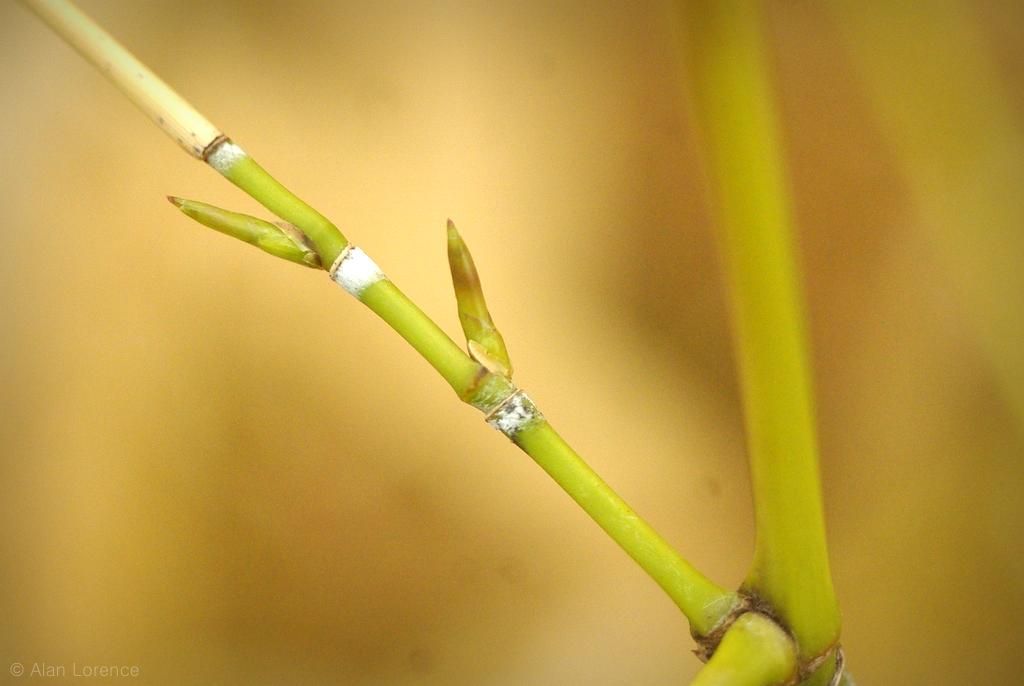
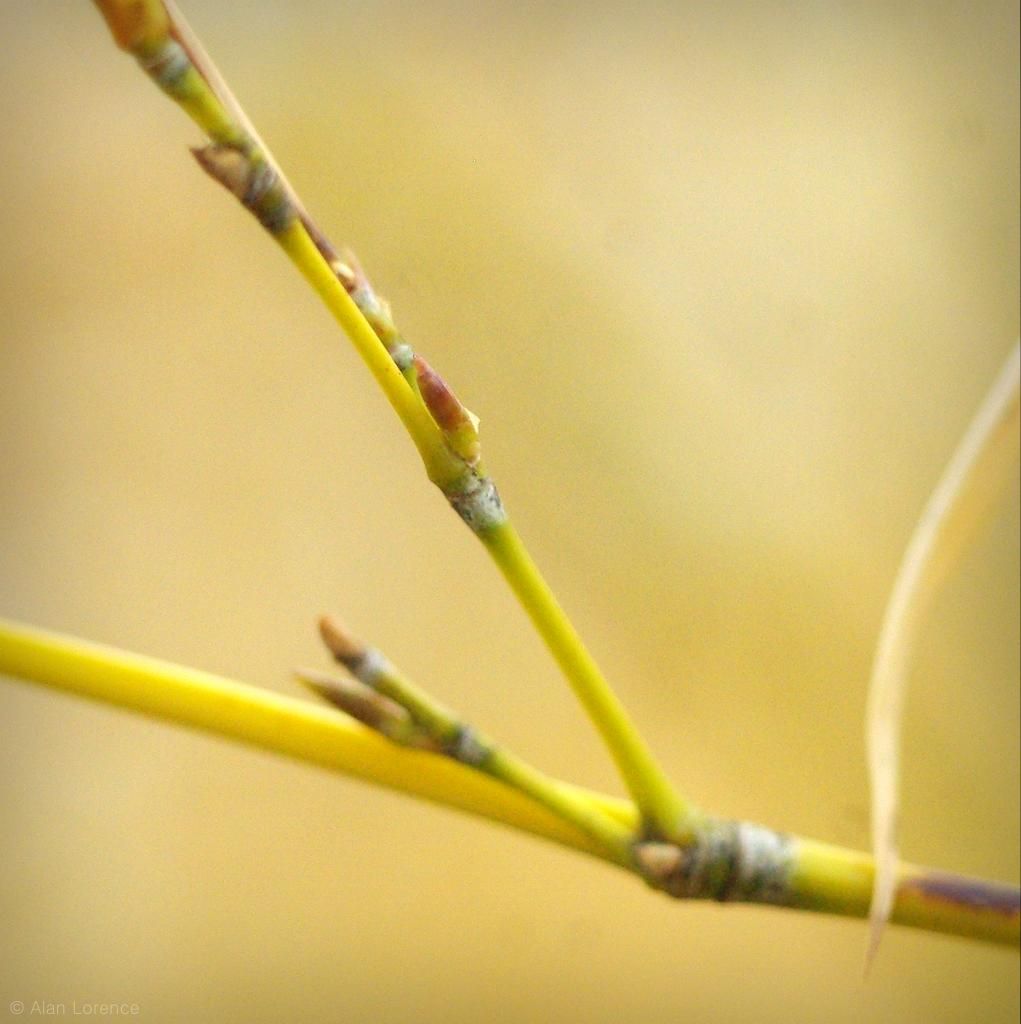
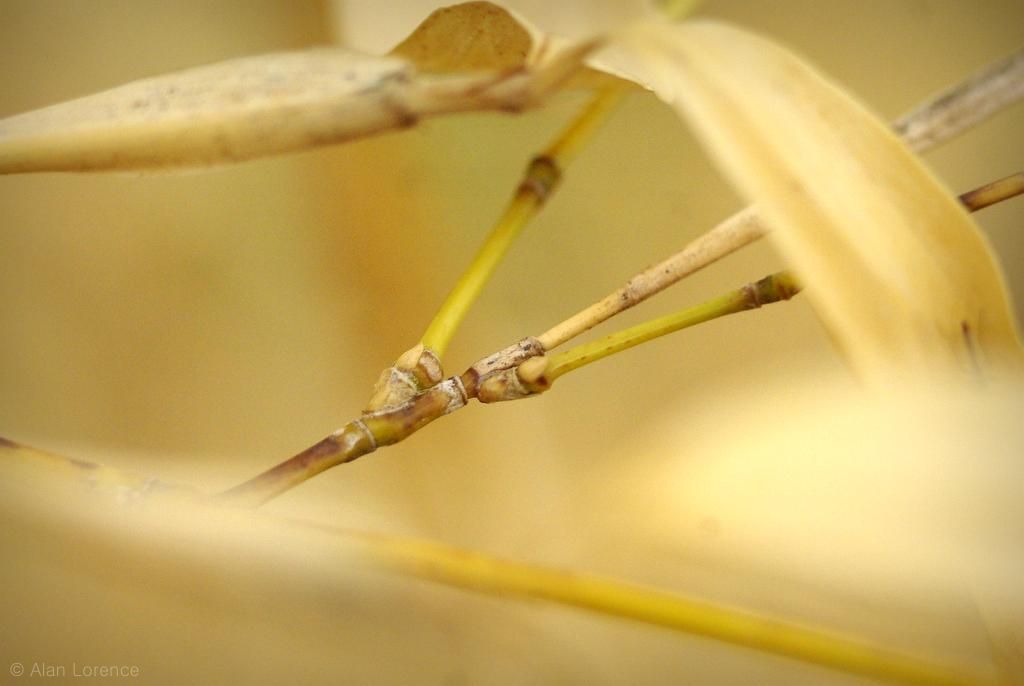
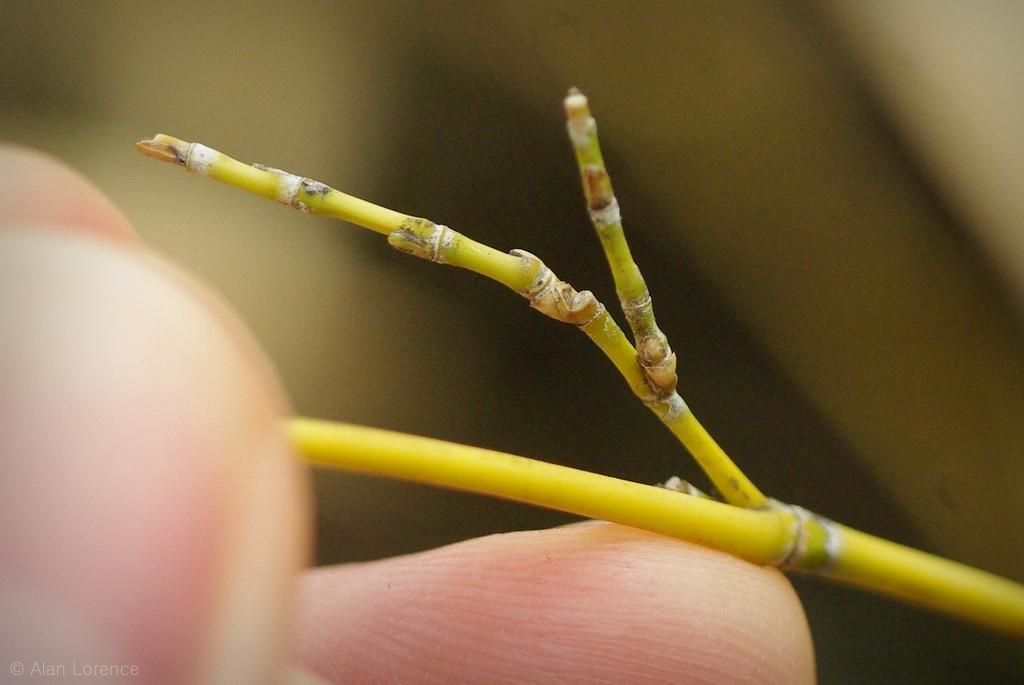
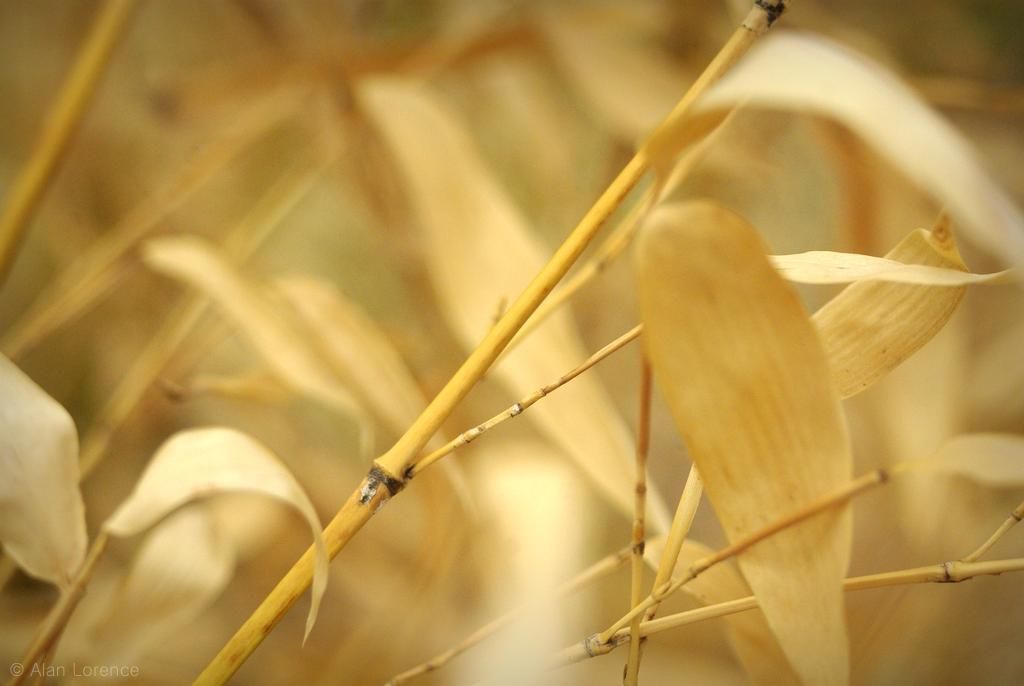
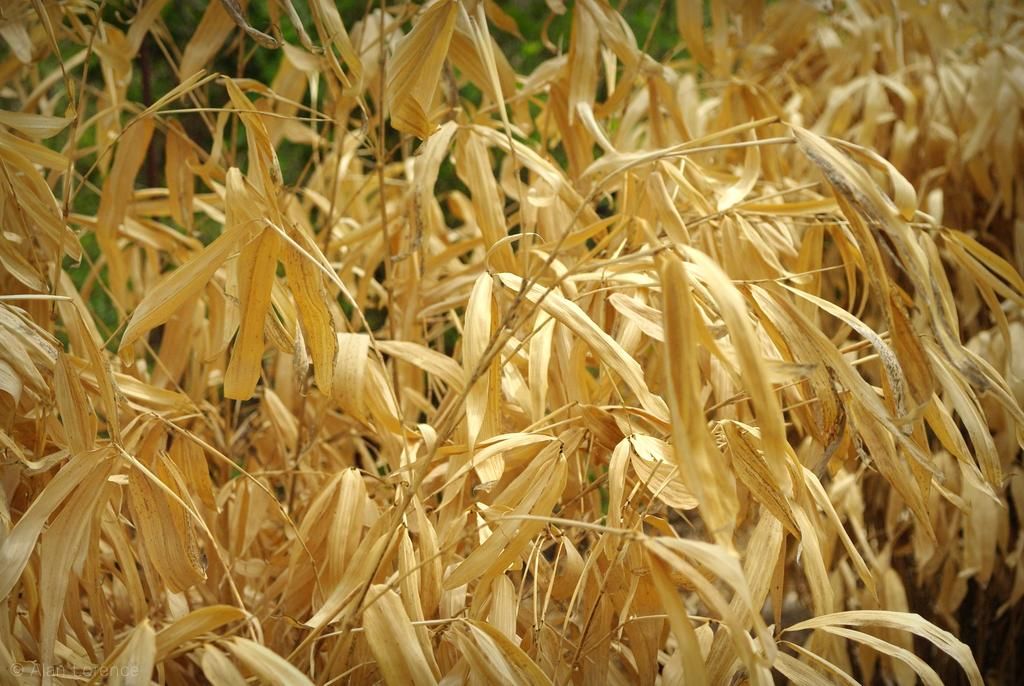
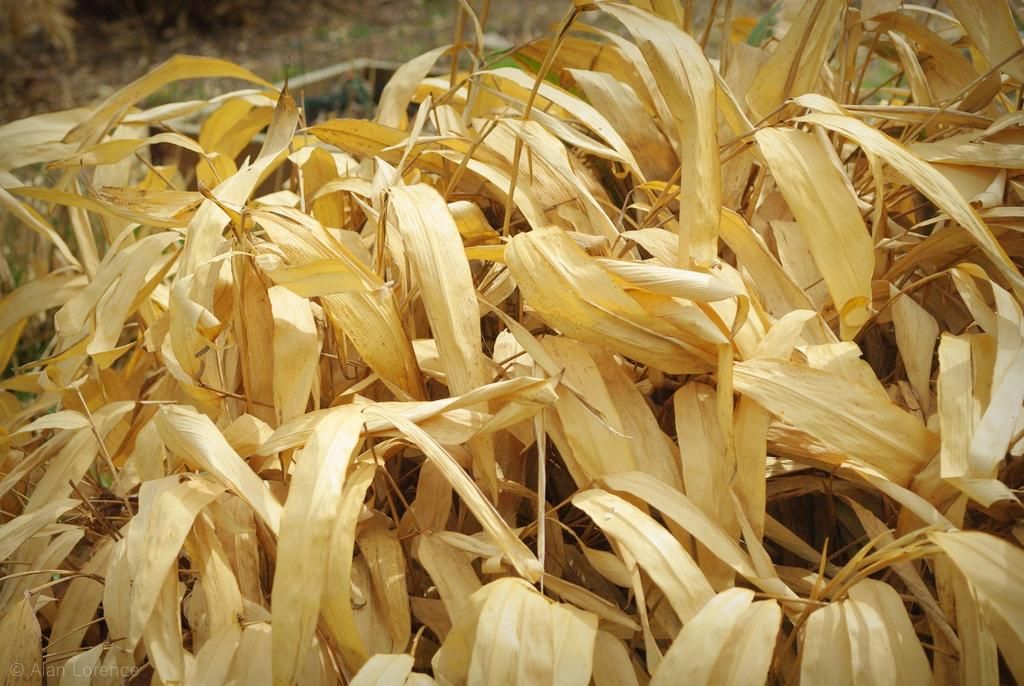
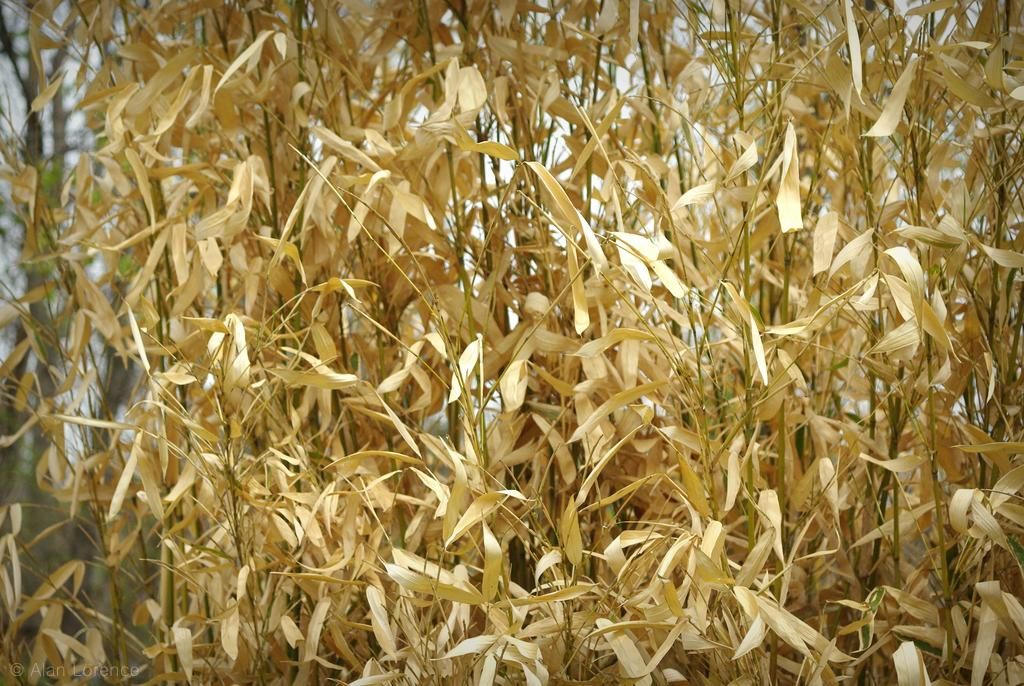
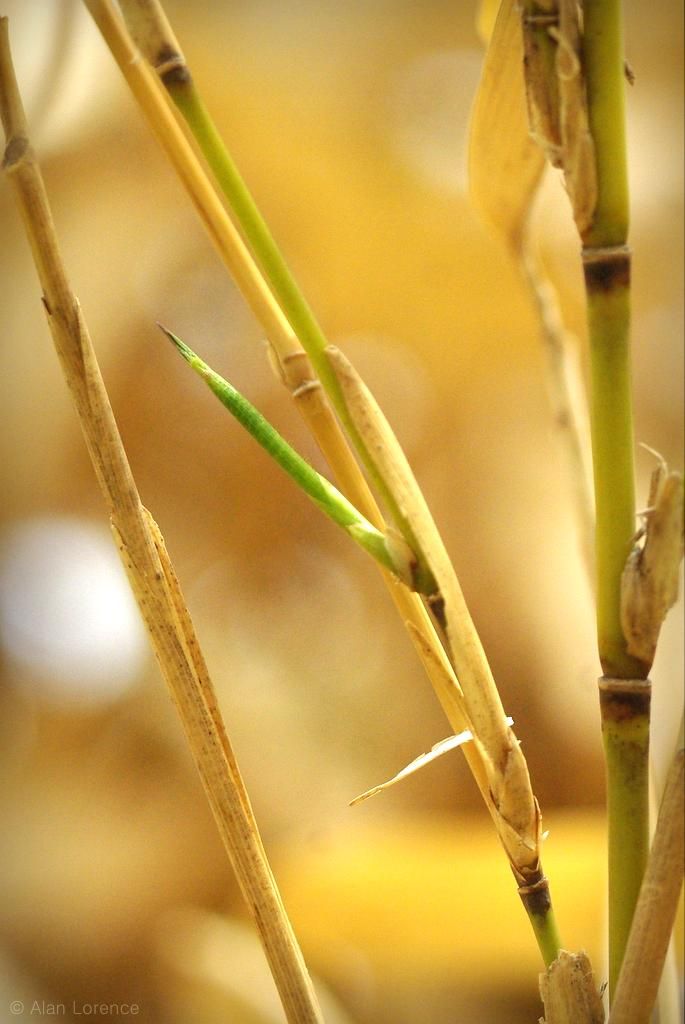
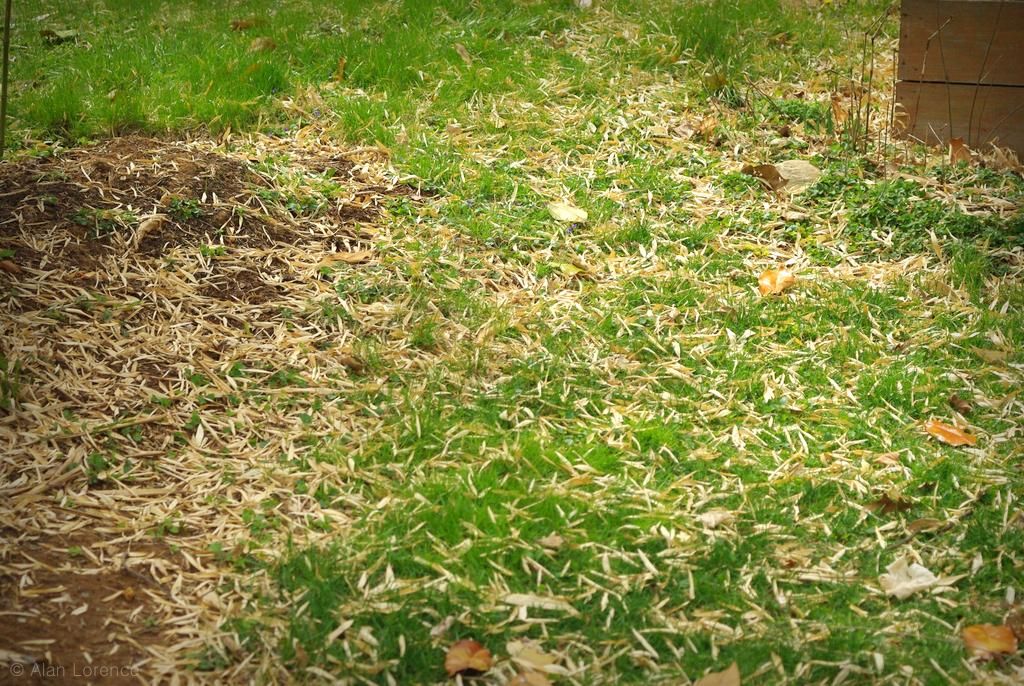
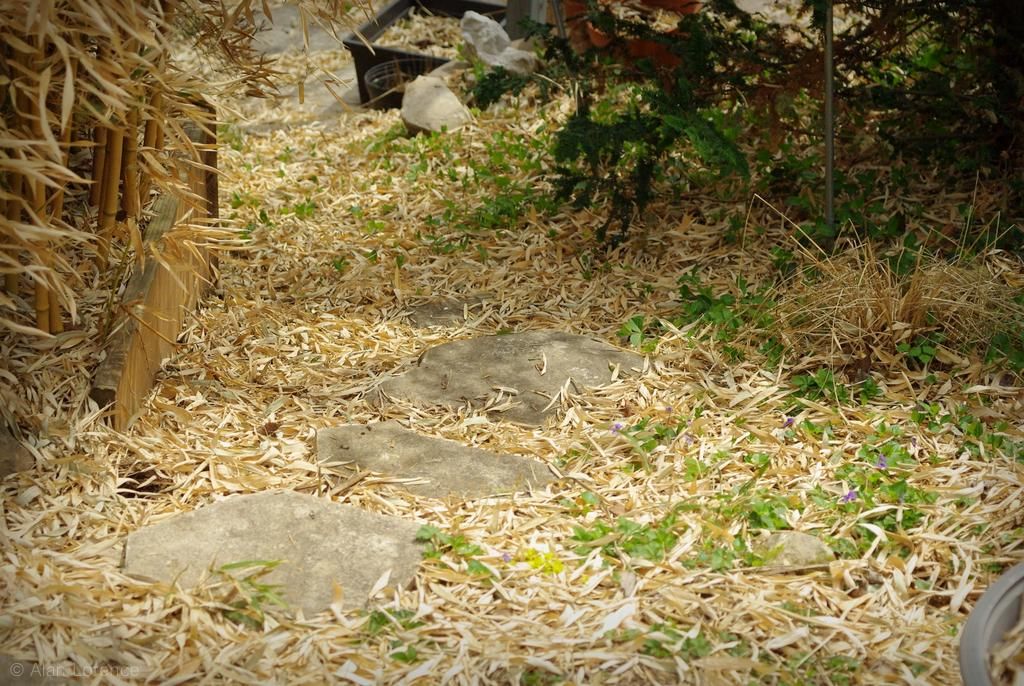
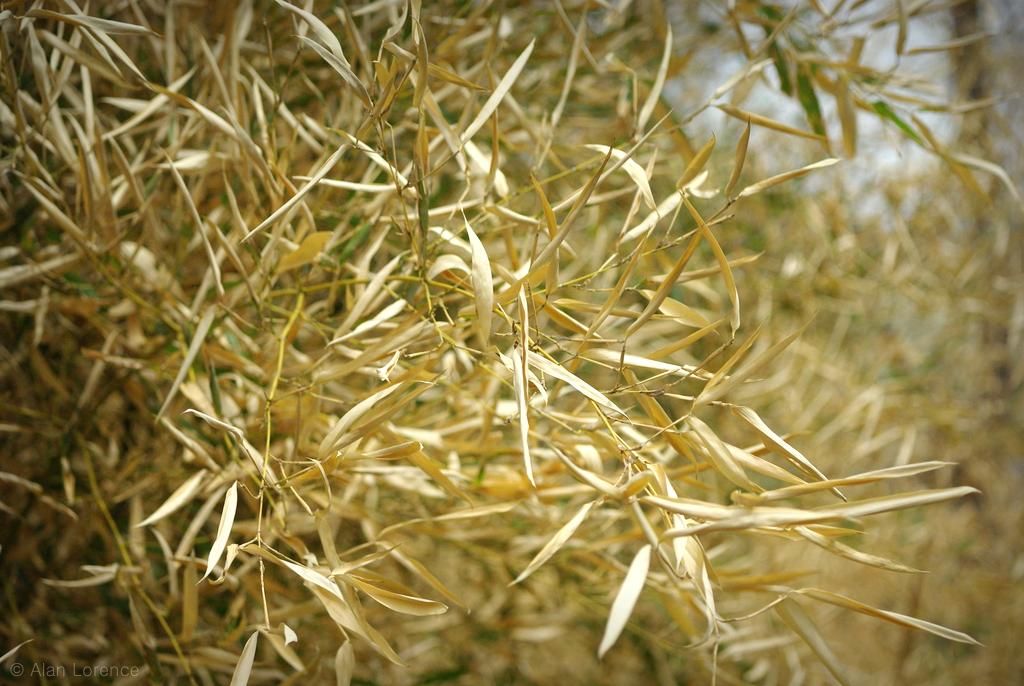
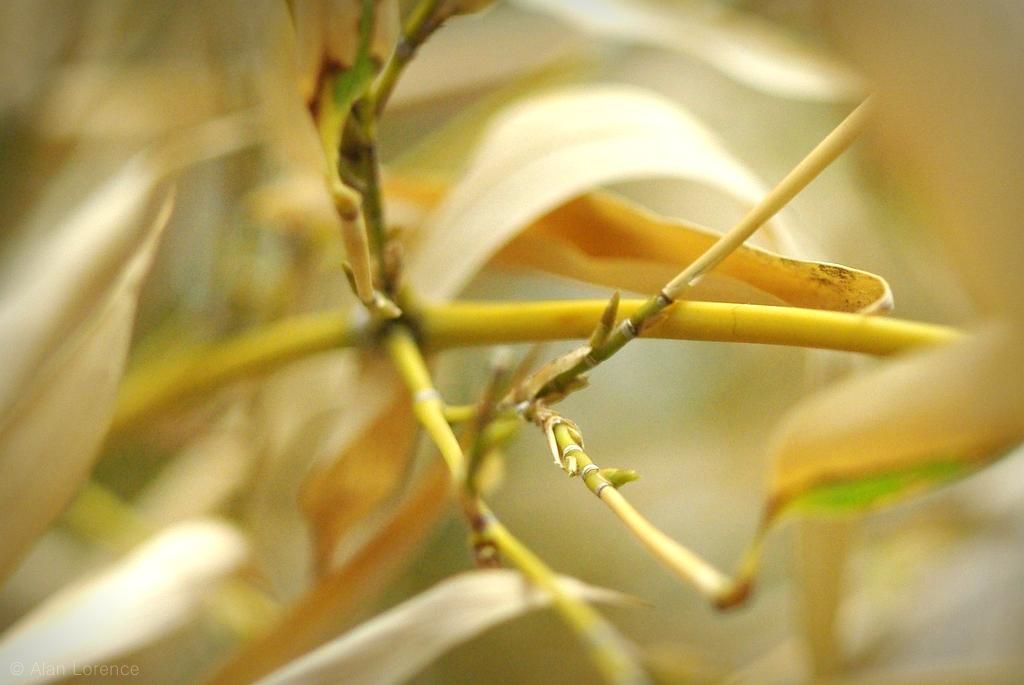
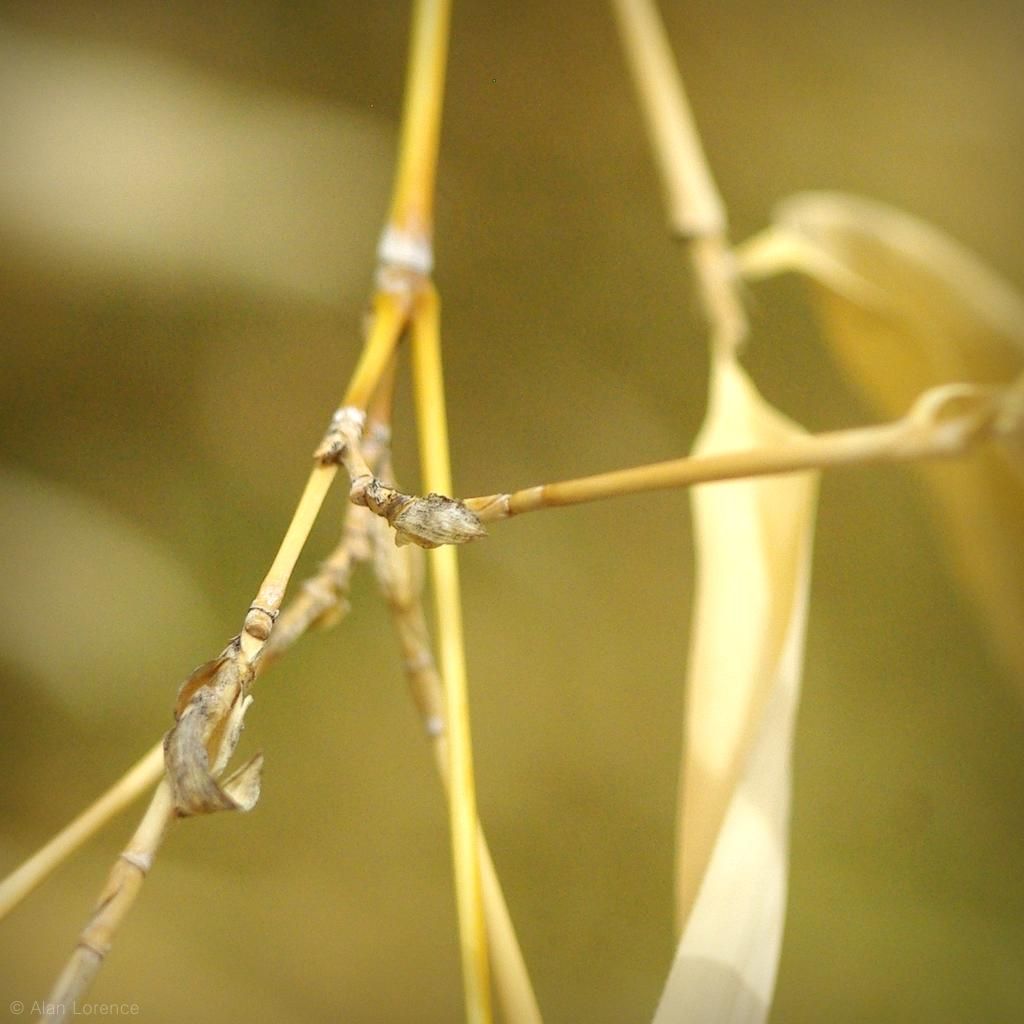
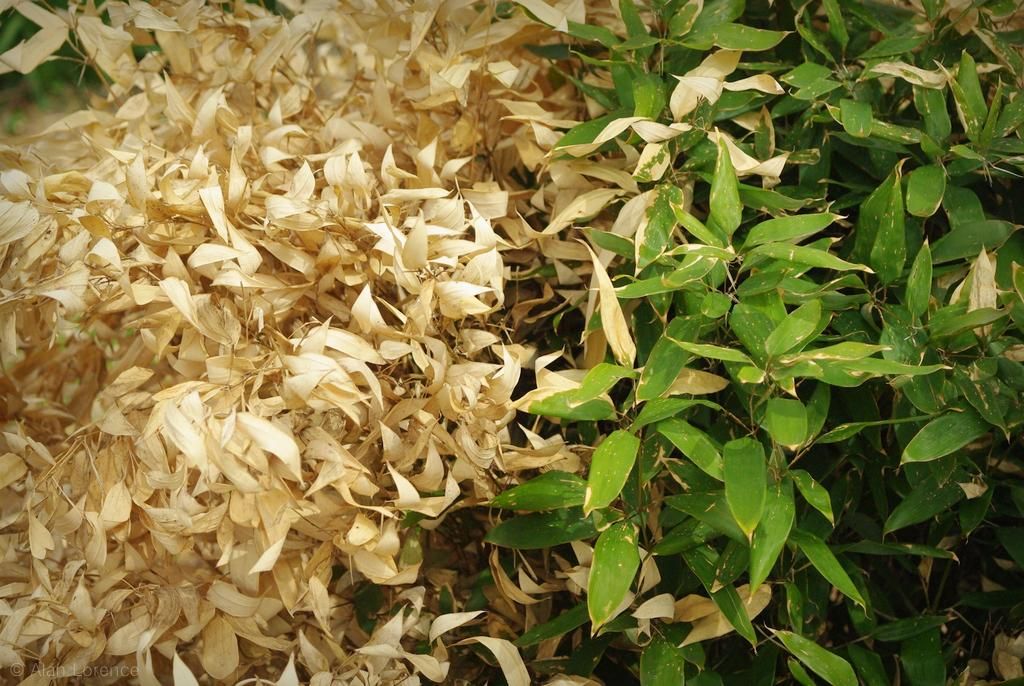
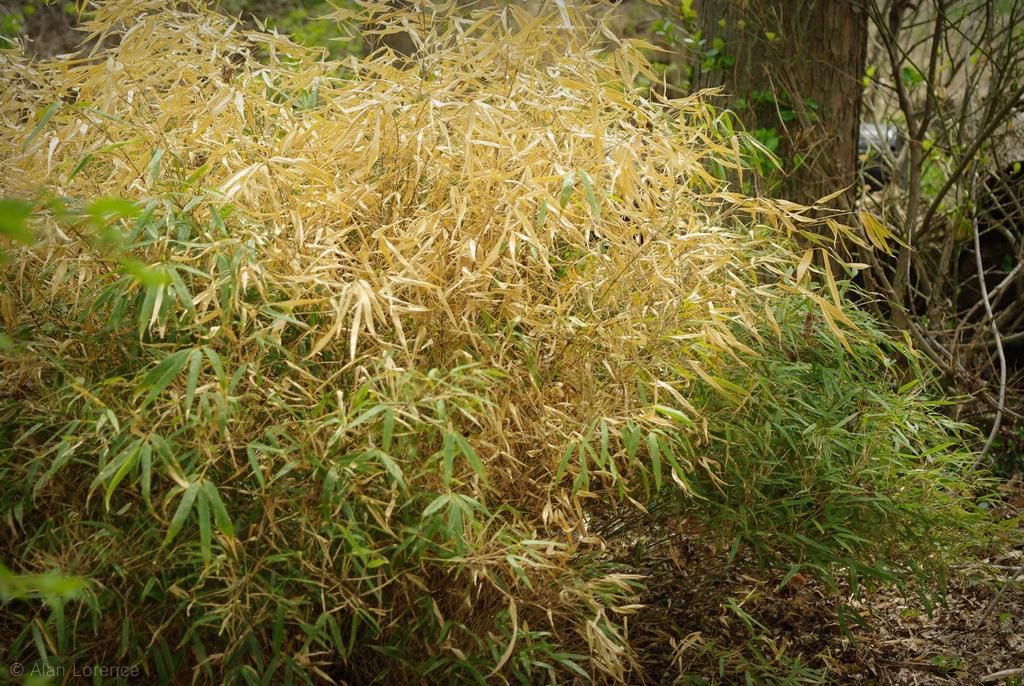
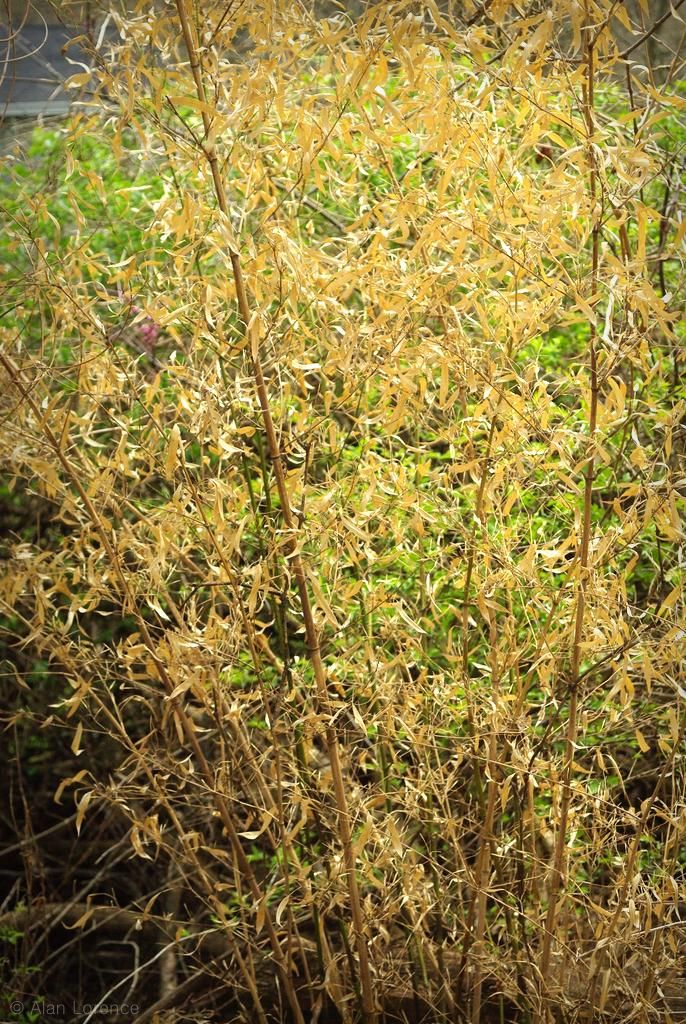
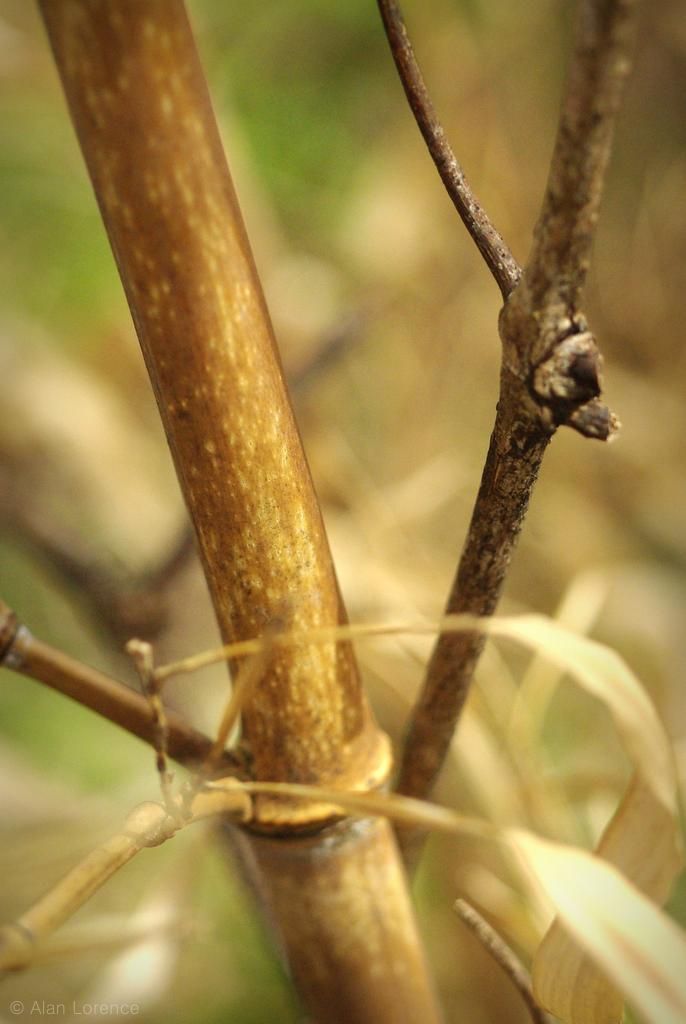
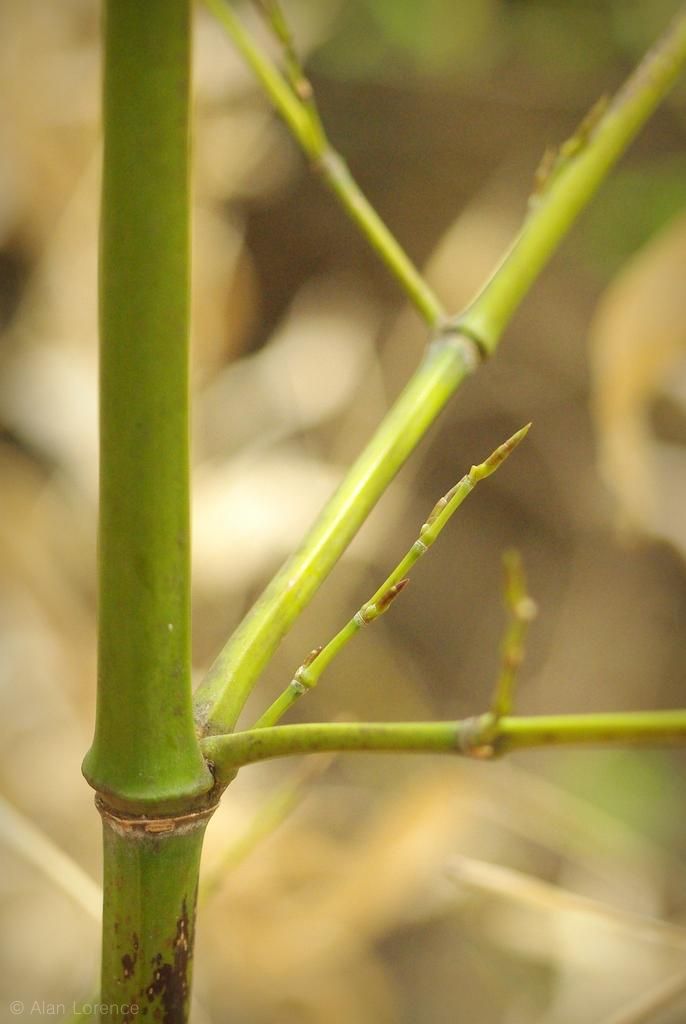




Interesting post, greeting from Belgium
I look forward to your next update. I've had several casualties myself, but from the ongoing drought in California, not from the cold.
Thanks for this, Alan! I have a Phyllostachys bambusoides 'Allgold' that had severe damage last winter for a variety of reasons other than just the temperature but still has a few leaves that are partially green. While it's currently quite an eyesore in the otherwise beautifully spring green garden, I refuse to give up on it as it has the most beautiful butterscotch golden culms of all my bamboos. Your post gives me hope that it'll recover!
Outlaw: check for lengthening leaf buds. It's the only way to know if the culm is dead (or will soon be).
Hi Allan
Would you know how and where to cut off dead culms?
Good question. Cut as close to ground as you can, because those little stumps are not only ugly, they're painful or dangerous if you need to get in there in the future. If the culm is small enough, just use a good pair of loppers. If the culms are too thick or sturdy for loppers, use a saw that has a fine-toothed blade. Some people have success with reciprocating saws if you want to go the power route, but you need to use a fine-toothed blade or the culms will splinter.